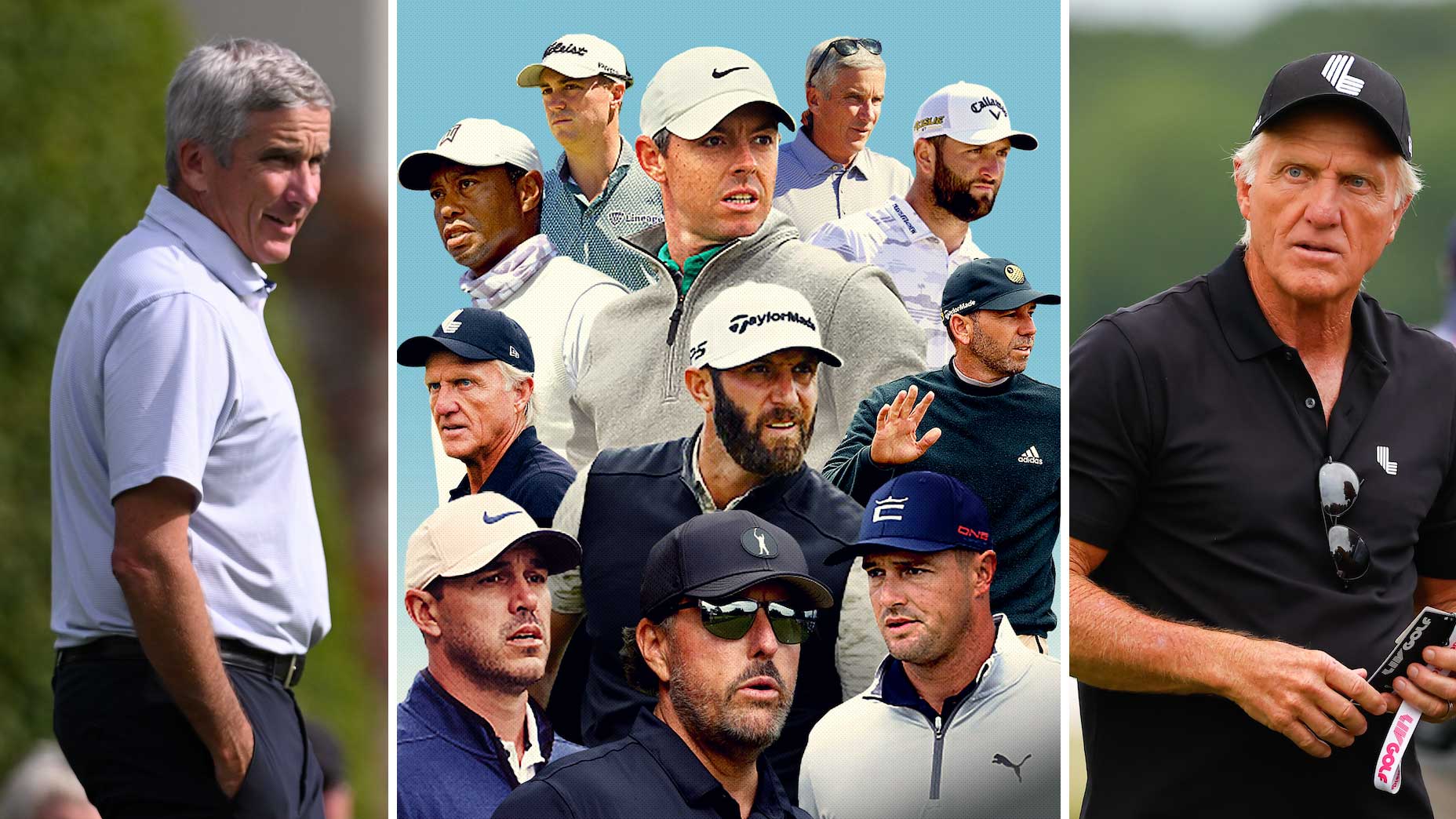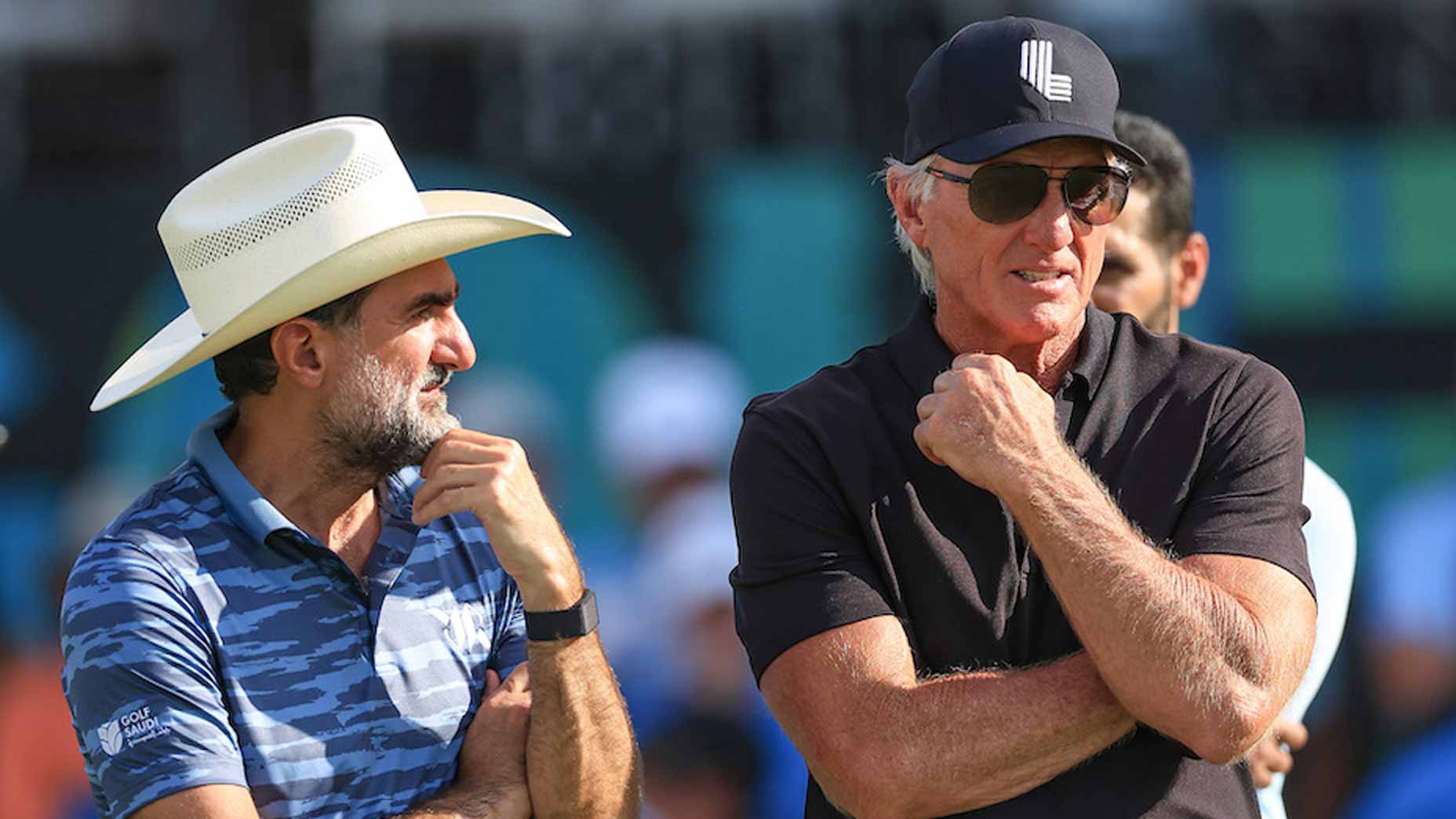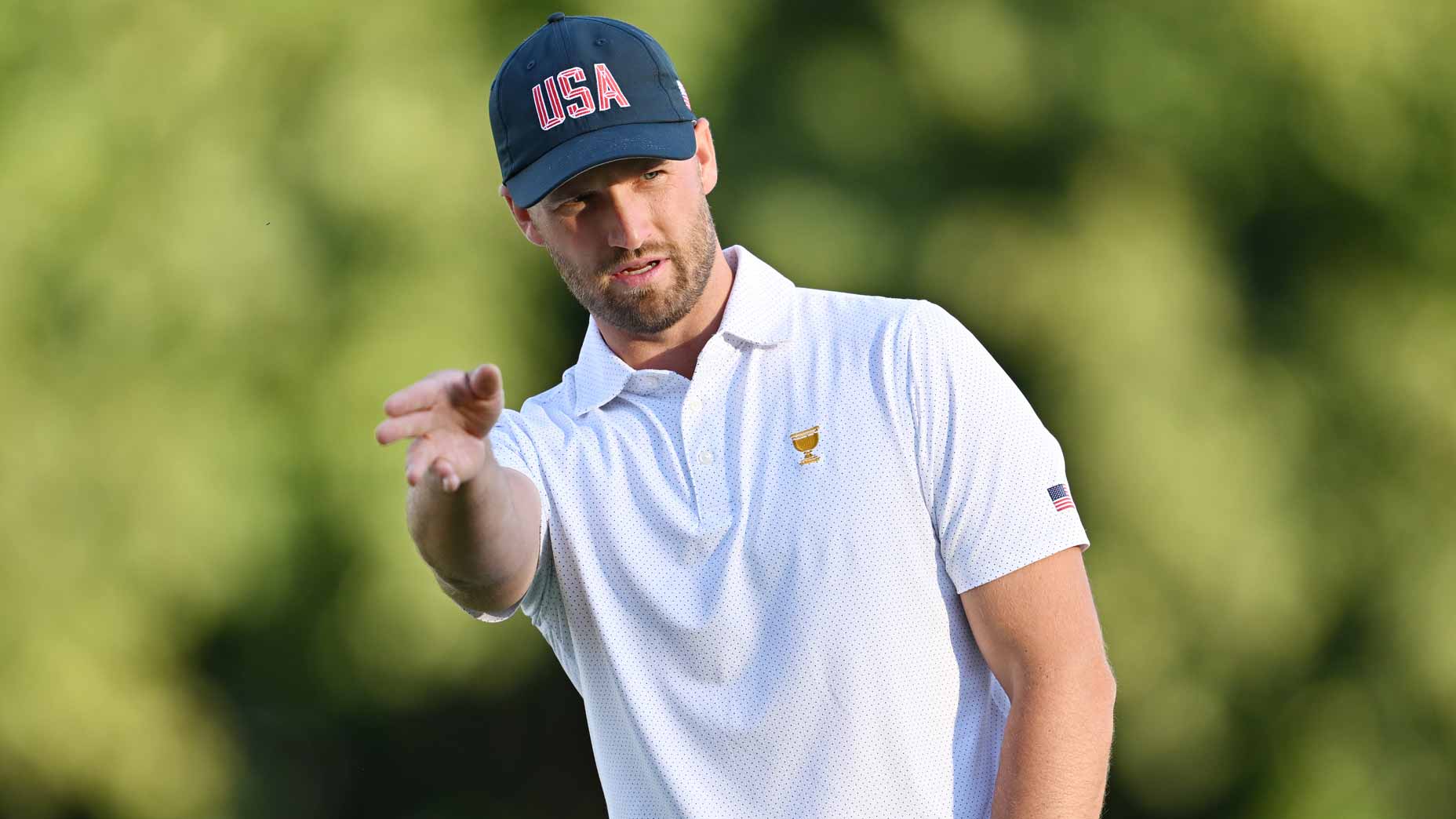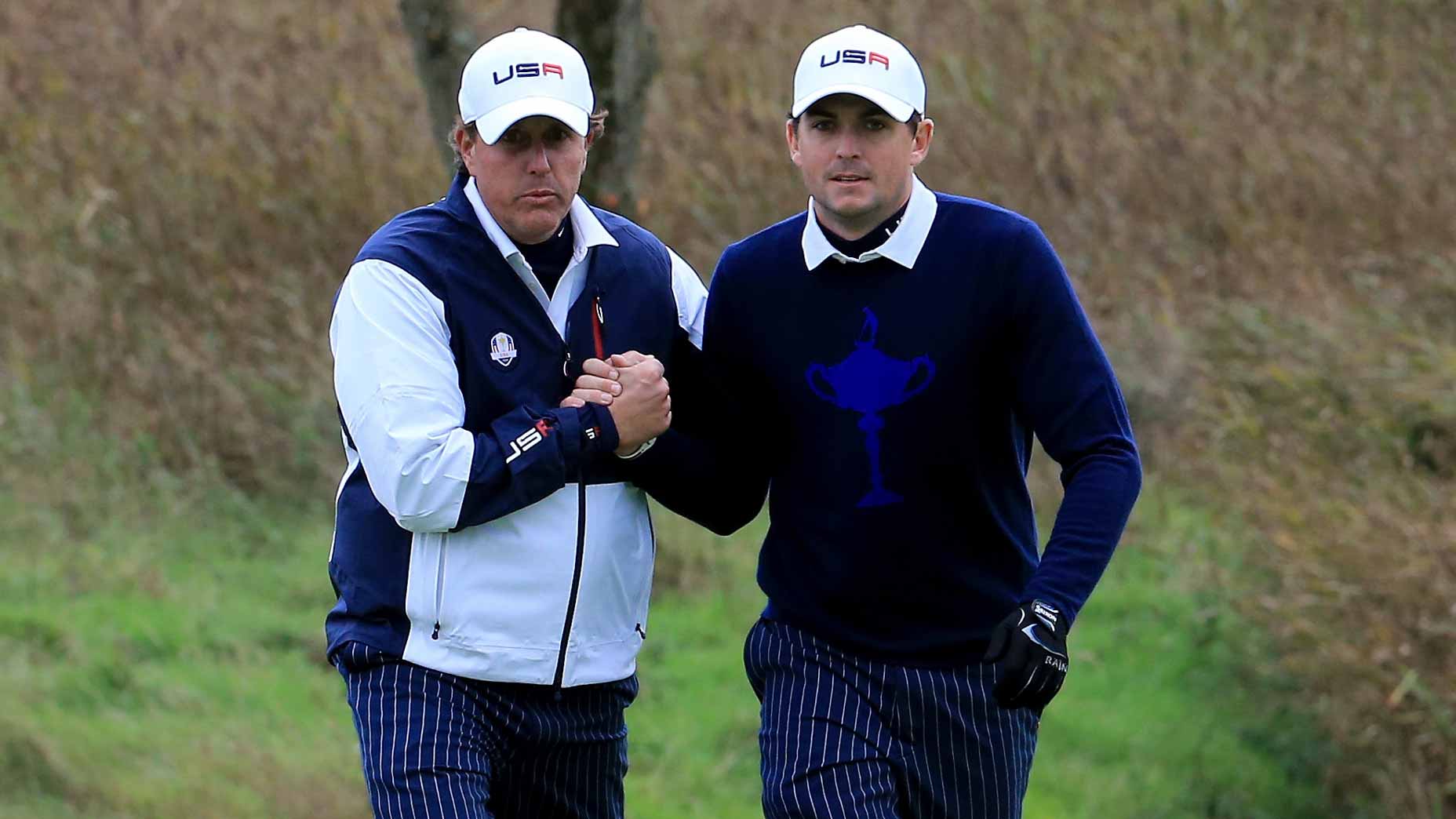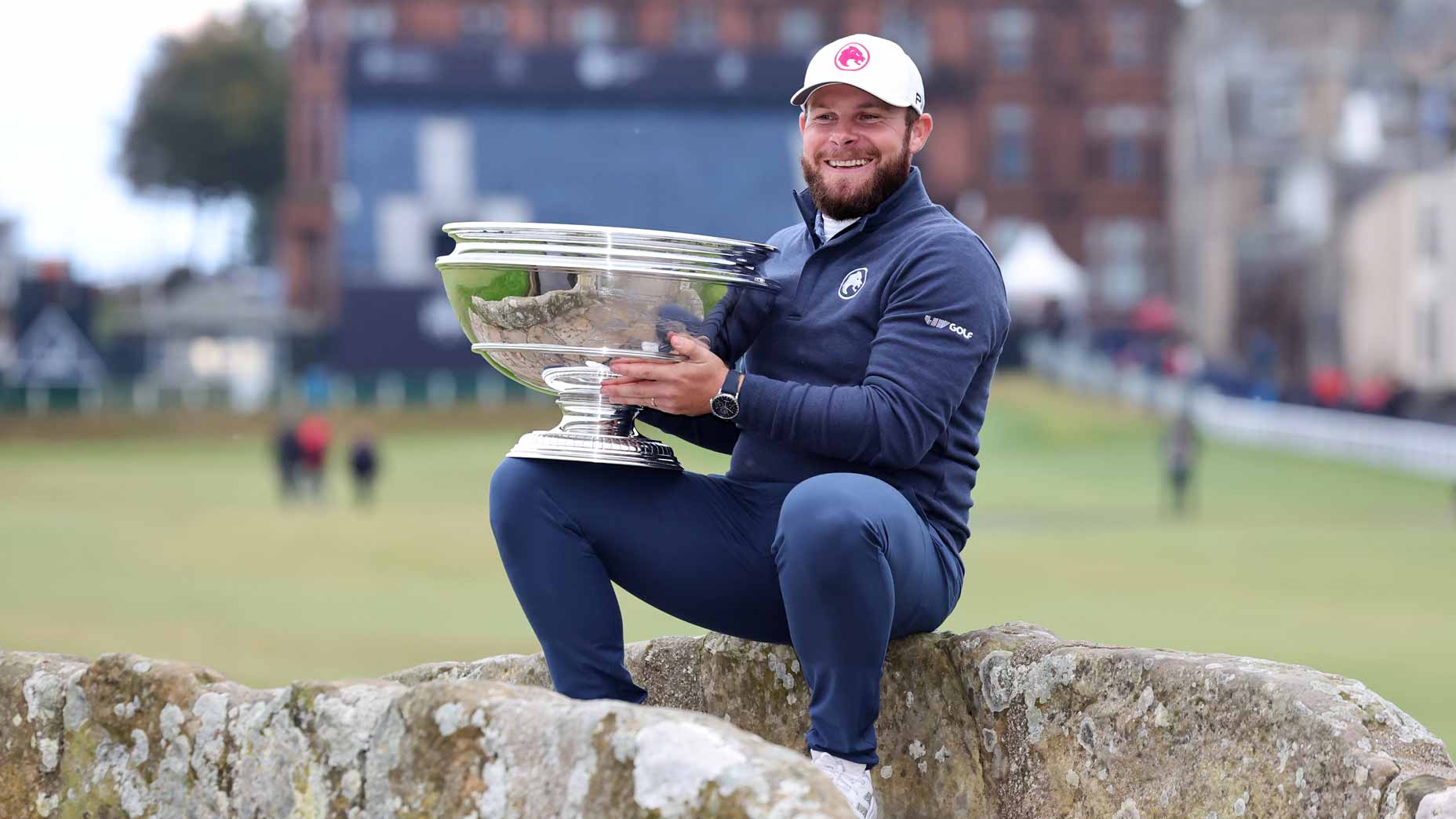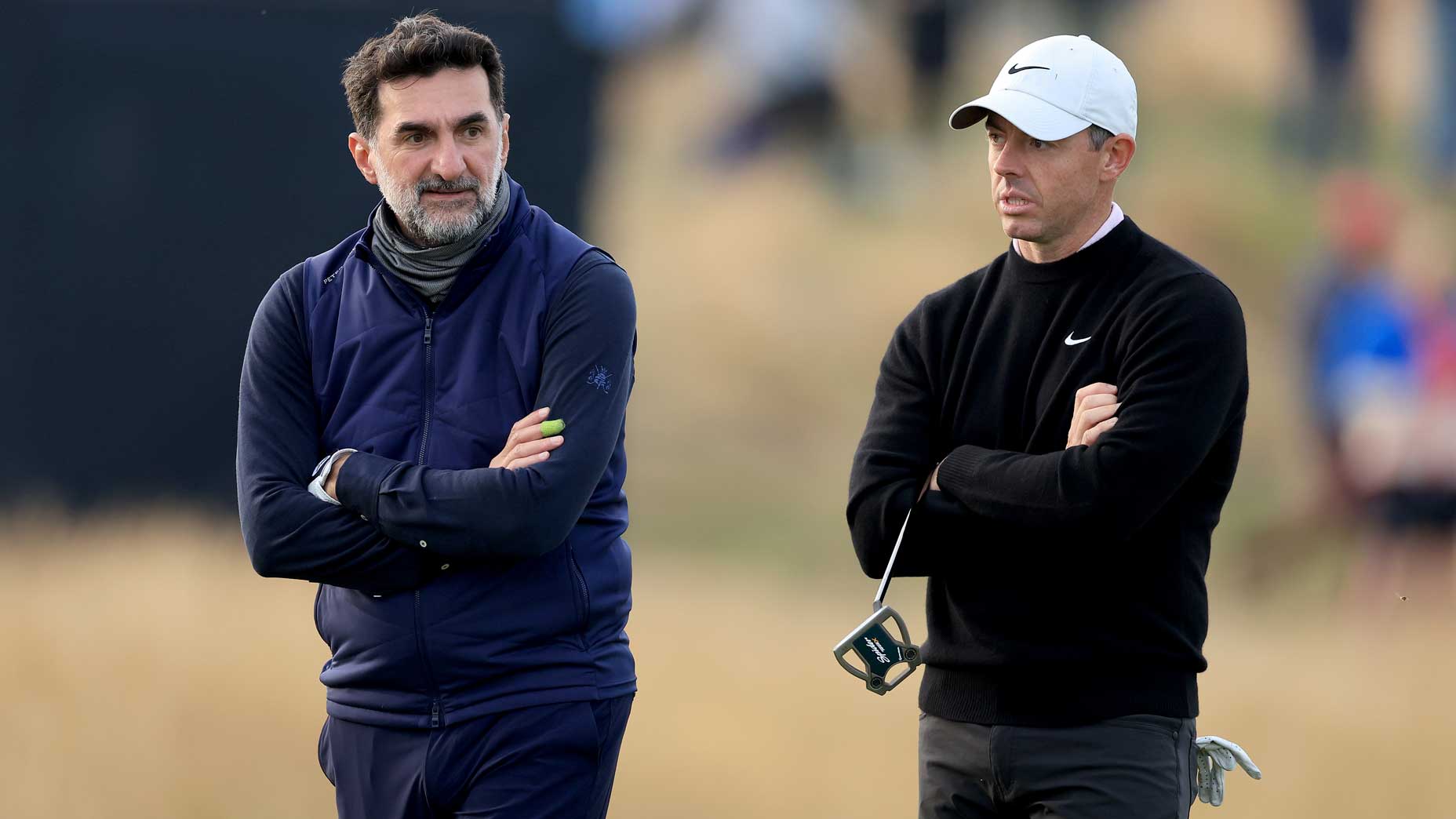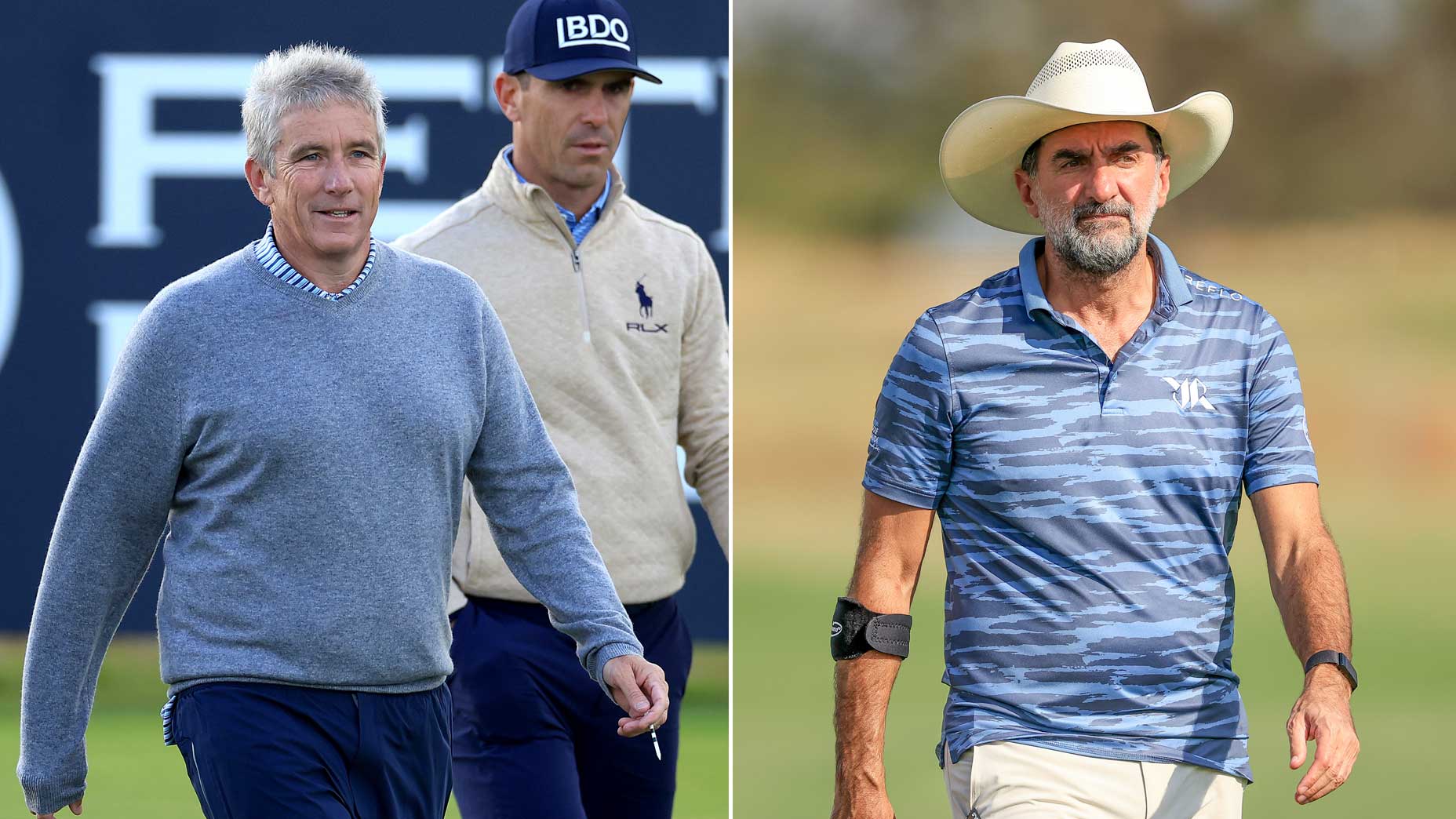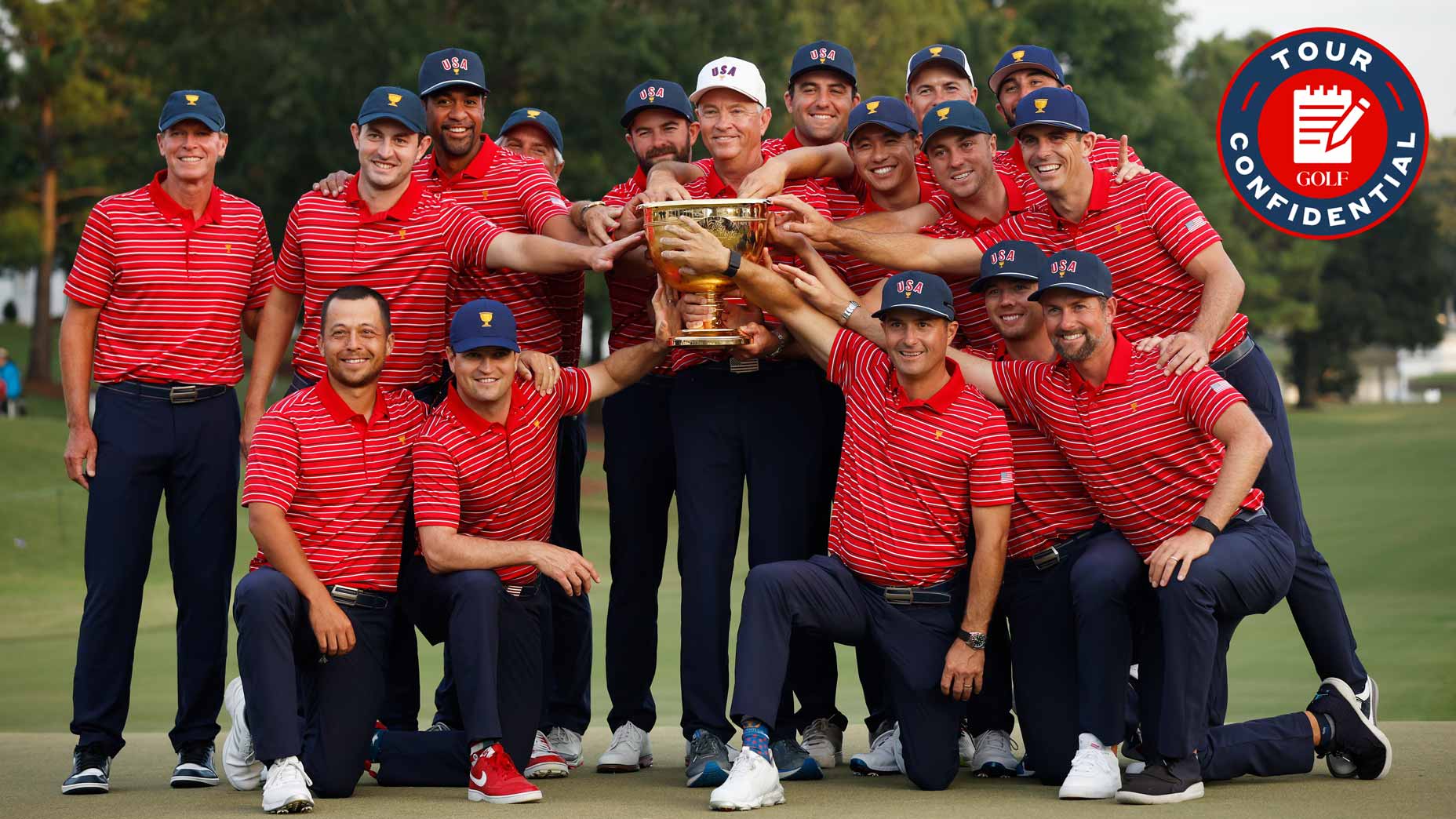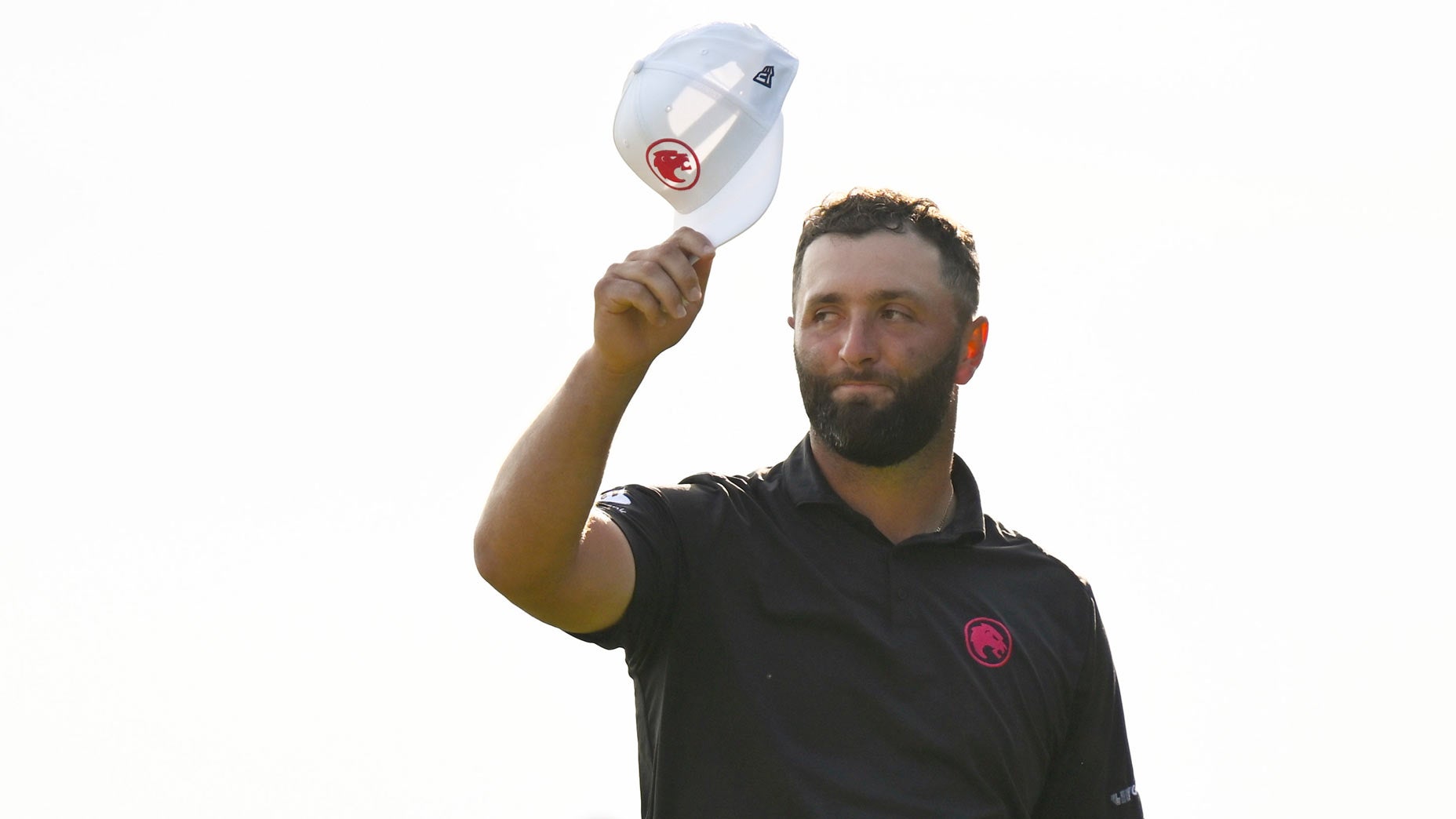Phil Mickelson claims his ‘scary m–f–‘ chat was off the record. Here’s what we know
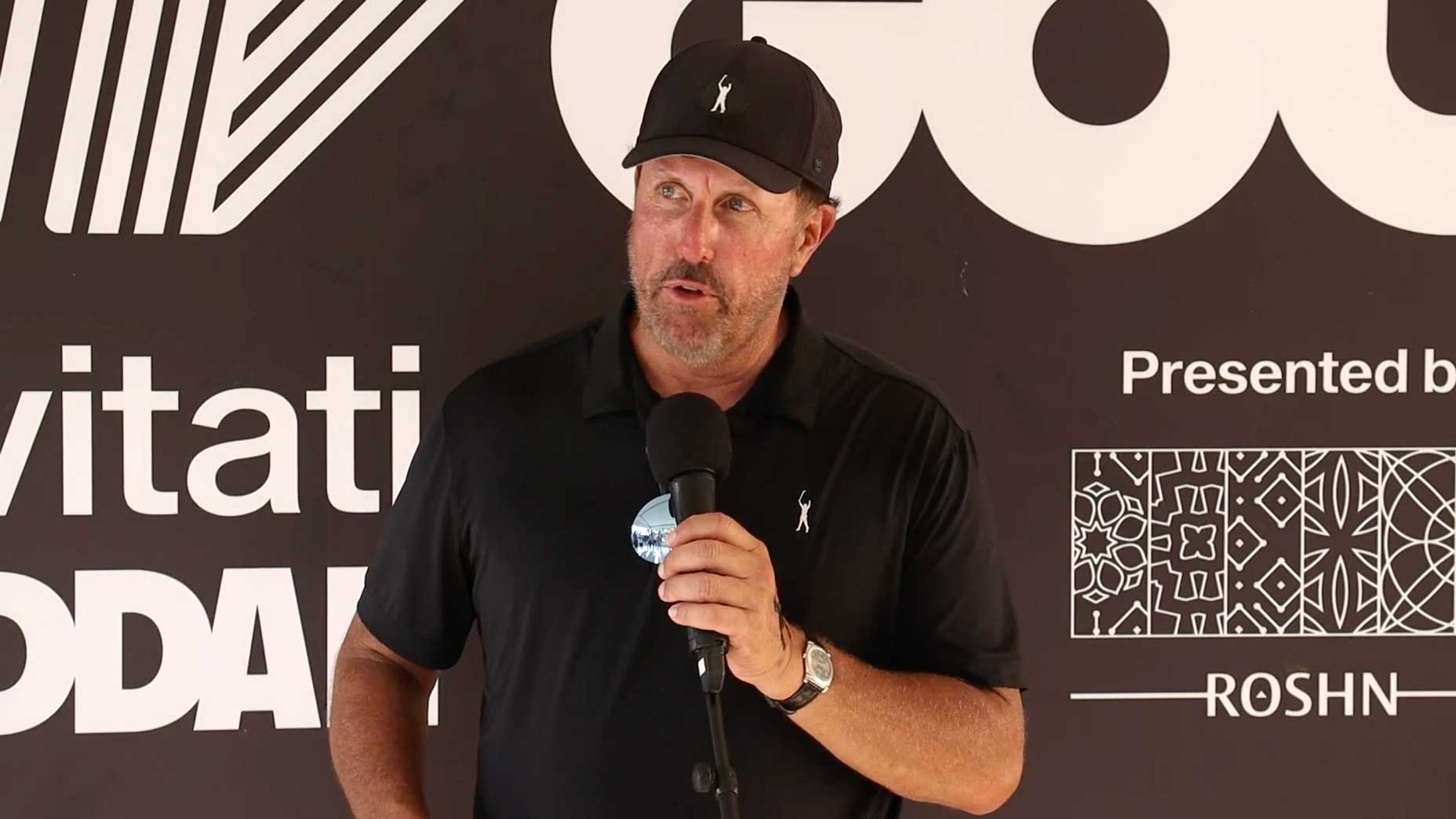
Phil Mickelson spoke to reporters in Saudi Arabia on Wednesday.
LIV Golf
In the context of modern professional golf, it’s tough to think of many phone calls more pivotal than last November’s chat between Phil Mickelson and Alan Shipnuck. In that conversation, Mickelson uttered a two-word phrase about LIV Golf’s Saudi backers — referring to them as “scary m—–f—–s” — that spread across the internet, called LIV’s launch into question and led to Mickelson’s months-long disappearance from the public eye.
On Wednesday, as Phil Mickelson returned to Saudi Arabia for the first time since Shipnuck made those comments public, he was asked about them. Mickelson’s response?
“So I will reiterate, I never did an interview with Alan Shipnuck,” he said.
If that makes you go, “Wait, what?” then you’re not alone. For starters, let’s be clear about one thing: Mickelson isn’t actually saying he never talked with Shipnuck, nor even disputing the quotes in question. He acknowledged (and apologized for) saying what Shipnuck quoted him as saying. But Mickelson contends the contents of the call were a private conversation.
Let’s back up 11 months to better understand the circumstances of that phone call, how Shipnuck — who didn’t immediately respond to an interview request for this story — has explained it and what, exactly, Mickelson is claiming happened.
At the time, Shipnuck was in the midst of writing a biography about Mickelson. Mickelson, meanwhile, was evaluating the possibilities of joining — and shaping — LIV Golf. Until November, Mickelson had declined Shipnuck’s multiple requests to be interviewed for the book. But, according to Shipnuck (who is, in the interest of full disclosure, a former writer for GOLF), he finally reached out the Sunday after Thanksgiving, just a week before the book deadline, saying, according to Shipnuck, that “he wanted to discuss media rights and his grievances with the PGA Tour, both of which inevitably lead back to Saudi Arabia.”
Mickelson’s comments didn’t immediately go to print. The biography wasn’t slated for release until the following May, on the anniversary of Mickelson’s PGA Championship win. But in February, LIV had secured commitments from multiple PGA Tour pros and was on the verge of an announcement. Shipnuck, who had the impression he was in possession of valuable information about how Mickelson perceived the league and its backers, felt he had to act. He published an excerpt from that book on the Fire Pit Collective site entitled “The Truth about Phil and Saudi Arabia” that included their conversation. Here’s the most-cited excerpt:
‘Mickelson told me he had enlisted three other “top players” he declined to name and that they paid for attorneys to write the SGL’s operating agreement, codifying that the players would have control of all the details. He didn’t pretend to be excited about hitching his fortunes to Saudi Arabia, admitting the SGL was nothing more than what he called “sportswashing” by a brutally repressive regime. “They’re scary motherfuckers
to get involved with,” he said. “We know they killed [Washington Post reporter and U.S. resident Jamal] Khashoggi and have a horrible record on human rights. They execute people over there for being gay. Knowing all of this, why would I even consider it? Because this is a once-in-a-lifetime opportunity to reshape how the PGA Tour operates. They’ve been able to get by with manipulative, coercive, strong-arm tactics because we, the players, had no recourse. As nice a guy as [PGA Tour commissioner Jay Monahan] comes across as, unless you have leverage, he won’t do what’s right. And the Saudi money has finally given us that leverage. I’m not sure I even want [the SGL] to succeed, but just the idea of it is allowing us to get things done with the [PGA] Tour.”’
The comments made the rounds and were quickly picked up by international news media. The fallout was immediate and severe; within hours, conversation around LIV turned toxic and interested players quickly grew skittish. The PGA Tour took advantage of the moment to secure written statements from high-profile players like Bryson DeChambeau and Dustin Johnson, who reinforced their commitments to the PGA Tour. (Spoiler alert: Those commitments weren’t binding.)
By week’s end, LIV’s demise felt imminent. Rory McIlroy summed up the mood: “It’s dead in the water, in my opinion,” he said. That was obviously reactionary, and McIlroy has since acknowledged that his LIV obituary jumped the gun. But at the time, LIV’s employees felt the same way. The interview had called its future into question.
Mickelson felt the fallout. The morning the excerpt dropped, he texted Shipnuck.
“He was less than thrilled,” Shipnuck wrote of their exchange. He added that Mickelson made “a half-hearted attempt at revisionist history, trying to say our talk had been a private conversation, but I shut that down real quick.”
Several days later, Mickelson released a statement apologizing for the comments and announced that he would be taking some time away from the public eye. That was also the first time Mickelson publicly stated that he believed his comments to Shipnuck had been off the record. Mickelson also acknowledged that the quotes were legitimate.
“Although it doesn’t look this way now given my recent comments, my actions throughout this process have always been with the best interest of golf, my peers, sponsors and fans. There is the problem of off record comments being shared out of context and without my consent, but the bigger issue is that I used words I sincerely regret that do not reflect my true feelings or intentions. It was reckless, I offended people, and I am deeply sorry for my choice of words. I’m beyond disappointed and will make every effort to self-reflect and learn from this.”
Weeks after that, Mickelson was suspended by the PGA Tour for recruiting other pros to join LIV. The suspension was initially two months but was extended a year after Mickelson teed it up at LIV’s London event and then for an additional year when he played LIV Portland, per court filings.
Shipnuck wrote about Mickelson’s statement and explained, in no uncertain terms, that he believes the conversation was fair game. He has said in interviews that he’ll “go to his grave” knowing the conversation was on the record and called Mickelson’s claims “false and duplicitous” in another Firepit column.
He knew I was working on a book about him and asked to speak, saying he wanted to discuss media rights and his grievances with the PGA Tour, both of which inevitably lead back to Saudi Arabia. If the subject of a biography phones the author, the content of that conversation is always going to inform the book, unless it is expressly agreed otherwise. Not once in our texts or when we got on the phone did Mickelson request to go off-the-record and I never consented to it; if he had asked, I would have pushed back hard, as this was obviously material I wanted for the book. Mickelson simply called me up and opened a vein. To claim now that the comments were off-the-record is false and duplicitous.
But he also said the reaction exceeded his expectations and desires.
“I watched all of this unfold in a state of dismay,” Shipnuck wrote in another column. “I knew his blunt comments about the Saudis and the Tour would provoke controversy but never imagined they would send a beloved Hall of Famer into exile for months.”
The allegations were a direct shot at Shipnuck’s reputation, too. Trust, truth and reputation are about all a journalist has; to call those into question is a serious matter.
One simple resolution would be for Shipnuck to release the audio of their call. But in this case, Shipnuck says no recording of the call exists. In an interview on the Hack it Out podcast, Shipnuck clarified that he was driving home when Mickelson called. He pulled over and had his daughter take the wheel while he took notes.
“I wish I had the audio,” he said on the podcast. “I was just taking notes on my computer as I was talking, so there isn’t audio. That would have been great, I wish I had it. Like I said, I thought this was just going to be boring conversation about NFTs and media rights, so it wasn’t recorded. He was speaking and I was just typing into my laptop, just how I do most of my interviews. That would be an elegant solution — I wish I had it, I’ll put it that way.”
LIV and Mickelson have both survived the controversial excerpt’s release. In Wednesday’s presser, Mickelson also crowed about LIV’s future, claiming that in the fight between LIV and the PGA Tour, he believes he’s on the “winning side.” LIV’s Saudi event is its seventh, and while its biggest battles remain — for world ranking points, broadcast deals and viewership — there’s no question the circuit has found more success than the PGA Tour had expected.
“I see LIV Golf trending upwards, I see the PGA Tour trending downwards,” Mickelson said. “I love the side that I’m on. And I love how I feel. I love how I’m reinvigorated and excited to play golf and compete. I love the experience. I love the way they treat us.”
But Mickelson’s evasion on Wednesday distracted from the initial question, and the bigger picture. If his experiences with the people involved with LIV Golf have been, as he now says, “nothing but incredibly positive,” why did Mickelson initiate last November’s conversation to begin with, and why did he say what he said?
Shipnuck’s best guess comes via an interview with The 42, where he guessed at his subject’s motivation.
“It’s an interesting thing. When Phil picked up the phone to call me, did he mean to tell me all those things? I can’t say, but it was a long, somewhat emotional phone call. And sometimes when people start talking, they get carried away by the sound of their own voice and lost in the moment.
“Maybe he really didn’t mean to tell me all that at the start of the conversation, but in the end, he couldn’t help himself. And this is not a rookie doing his first interview, who was overwhelmed by the attention. This is a very cagey manipulator of the media and he’s spent his whole career jousting with reporters and shaping public opinion.
“So Phil told me exactly what he wanted to tell me. And when the reaction was different than he expected, then he kind of concocted this whole thing about being off the record. But I mean, I’ll go to my grave knowing that he never asked me to go off the record and that all those comments were always going to be for the book.”
As of this summer, Mickelson and Shipnuck hadn’t spoken to each other since their February exchange. We’re guessing this won’t be the end of them speaking about each other.

